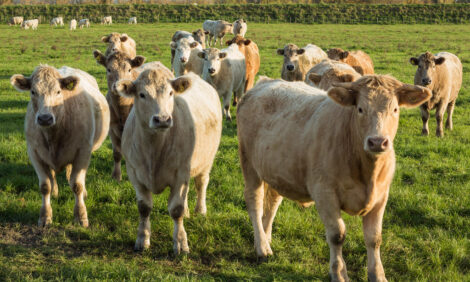



Tyson meat sales jump
Rising meat prices and improving demand drive profit marginsThe company reported a double-digit jump in sales and earnings in the fiscal fourth-quarter that ended 2 October, said Reuters.
"We delivered a record performance in our beef segment and experienced share gains in our retail core business lines ... while supporting the continued recovery in foodservice," said CEO Donnie King.
Increased demand from restaurants, newer meat items on restaurant menus and a boom in Chinese demand for US pork and beef have worked in favor of American meat processing firms like Tyson.
While demand is strong, industry stakeholders worry amid rising costs for labor, transportation and feed grain.
Tyson reported about $335 million in direct costs in fiscal 2021 related to COVID-19, including protective equipment, testing and vaccinations for employees. The total did not included indirect costs such as higher meat product inputs, transportation and plant inefficiencies that have sent consumer meat prices soaring.
Top aides to President Joe Biden blamed Tyson and other large meat rivals that control much of the meat processing sector for rising food prices.
Tyson has rejected those assertions and instead blamed the pandemic and the U.S. labor shortage for limiting production.
The Jimmy Dean sausages maker said it was expecting sales to be about $49 billion to $51 billion for fiscal 2022, compared with market estimates of $47.99 billion, according to Refinitiv IBES.
Sales rose to $12.81 billion in the fourth quarter from $11.46 billion a year earlier. Analysts on average were expecting sales of $12.66 billion, according to Refinitiv IBES.
Net income attributable to Tyson increased to $1.36 billion, or $3.71 per share, from $654 million, or $1.79 per share, a year earlier.
Excluding one-off items, Tyson earned $2.30 per share, compared with estimates of $2.03.


